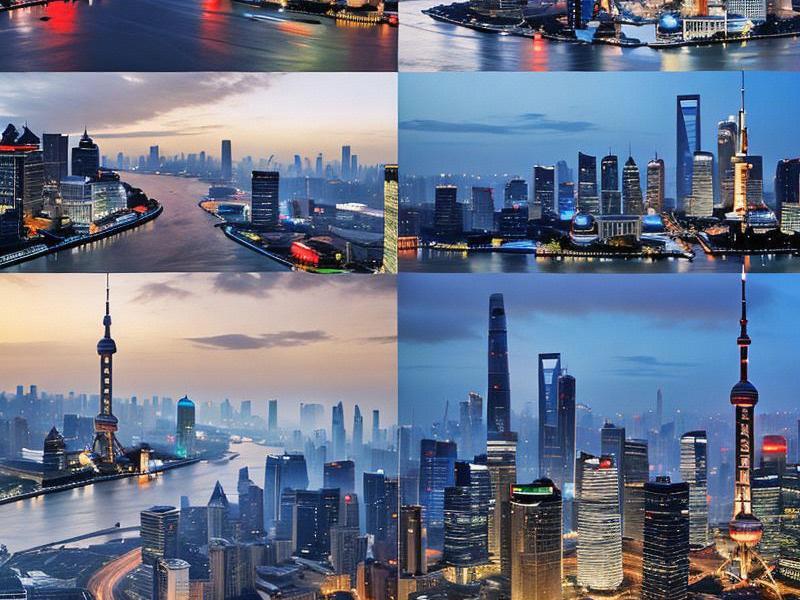
Shanghai, often referred to as the "Pearl of the Orient," stands as a testament to China's remarkable journey of modernization and globalization. This vibrant city, with its stunning skyline and deep historical roots, has become a symbol of China's economic and cultural might. Over the past few decades, Shanghai has undergone a dramatic transformation, evolving from a modest fishing village into one of the world's most dynamic cities.
The city's strategic location at the mouth of the Yangtze River has been a key factor in its rise. As a major port, Shanghai has long been a gateway for trade and cultural exchange. Its early interactions with Western powers in the 19th century introduced it to new ideas and technologies, setting the stage for its future development. Today, Shanghai continues to be a vital hub for international commerce, attracting businesses and investors from around the globe.
One of the most striking features of Shanghai is its rapid urban development. The city's skyline is a marvel of modern architecture, with iconic structures like the Oriental Pearl Tower, the Shanghai Tower, and the Jin Mao Tower. These buildings not only showcase the city's architectural prowess but also reflect its ambition to be a global leader in urban planning and design. The Bund, a historic waterfront area, has been revitalized with luxury hotels, shopping malls, and restaurants, blending the old with the new in a harmonious way.
Shanghai's economic achievements are nothing short of extraordinary. It is the largest city in China by population and one of the country's most important economic centers. The city's GDP ranks among the highest in the world, driven by a diverse range of industries including finance, technology, manufacturing, and trade. The Shanghai Stock Exchange is a key player in the global financial market, while the city's free trade zones have attracted numerous multinational corporations.
爱上海论坛 Innovation is at the heart of Shanghai's economic success. The city has invested heavily in research and development, fostering a thriving startup ecosystem. Zhangjiang Hi-Tech Park, often referred to as "China's Silicon Valley," is home to numerous high-tech companies and research institutions. Shanghai's commitment to innovation is evident in its efforts to promote digital transformation, green technology, and smart city initiatives.
Culturally, Shanghai is a melting pot of traditions and modernity. The city boasts a rich history that dates back thousands of years, with influences from various dynasties and foreign powers. This blend of cultures is reflected in its architecture, cuisine, and arts. The French Concession, a historic district with cobblestone streets and colonial-style buildings, offers a glimpse into the city's colonial past. Meanwhile, the Yu Garden, a classical Chinese garden, showcases the beauty of traditional Chinese architecture.
Shanghai's culinary scene is a reflection of its diverse cultural heritage. From the famous xiaolongbao (soup dumplings) to the savory shengjianbao (pan-fried buns), the city's food is a treat for the senses. International cuisine is also widely available, with restaurants offering everything from French haute cuisine to Japanese sushi. The city's night markets and food streets provide an authentic taste of local flavors, making dining an integral part of the Shanghai experience.
上海龙凤419是哪里的 Art and culture thrive in Shanghai, with numerous museums, galleries, and theaters showcasing the city's creative spirit. The Shanghai Museum is renowned for its extensive collection of Chinese art, while the Power Station of Art is a contemporary art museum housed in a former power plant. The city's theaters host a variety of performances, from traditional Peking opera to avant-garde theater productions.
Education is another area where Shanghai excels. The city is home to some of the best universities in China, including Fudan University and Tongji University. These institutions attract students and researchers from around the world, contributing to Shanghai's reputation as a center of learning and innovation. The city's government has implemented policies to enhance the quality of education and foster a culture of lifelong learning.
Sustainability is a growing concern for Shanghai, as it continues to grapple with the challenges of urbanization. The city has taken significant steps to promote environmental protection and resource conservation. Initiatives such as the construction of green spaces, the promotion of public transportation, and the implementation of waste management programs aim to crteeaa more sustainable urban environment.
上海花千坊龙凤 Shanghai's residents enjoy a high standard of living, with access to world-class healthcare, education, and cultural amenities. The city's infrastructure is highly developed, with efficient public transportation systems, modern airports, and well-maintained roads. The city's government is committed to improving the quality of life for its residents, investing in public services and social welfare programs.
Tourism is a major industry in Shanghai, attracting millions of visitors each year. The city's attractions range from historical landmarks like the Nanjing Road and the Yu Garden to modern marvels like the Shanghai Tower and the Maglev train. Visitors can explore the city's vibrant neighborhoods, enjoy its delicious cuisine, and immerse themselves in its rich cultural heritage.
In conclusion, Shanghai is a city that embodies the spirit of China's modernization and globalization. Its rapid urban development, economic achievements, cultural diversity, and commitment to sustainability make it a unique and dynamic metropolis. As Shanghai continues to grow and evolve, it remains a symbol of China's aspirations and a source of inspiration for the world.
